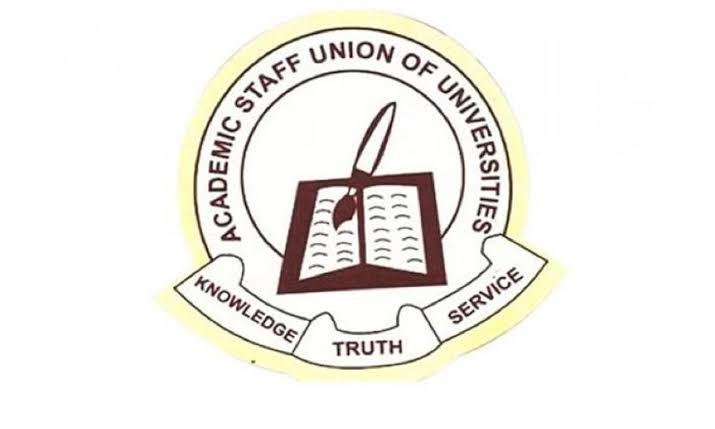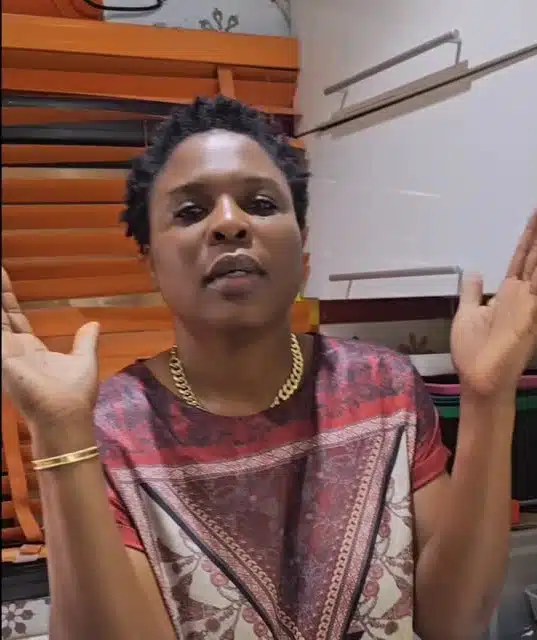
The Academic Staff Union of Universities (ASUU) has urged Nigerians to prevail on the Federal Government (FG) to grant its demands for better welfare and administrative conditions in public universities.
The union made the request on Friday at a news conference held at the Abia State University (ABSU), Uturu.
The Zonal Coordinator, ASUU Calabar Zone, Mrs Happiness Uduk, said that the only way to avert the imminent nationwide strike was for the State and Federal Governments to meet the union’s demands.
Uduk said that the body had given a two-week ultimatum for its demands to be met, warning that failure to do so would result in an industrial action.
She regretted that the FG had yet to fulfill its commitments under the FG-ASUU agreement in 2009, leading to stagnation in salary scales and overall welfare improvements.
She said: “Government had an agreement with ASUU in 2009, which tells us that for 15 years running, ASUU members have been on the same salary scale, nothing has changed.
“We are requesting that government should complete negotiations it started with us more than 13 years ago, first with the Babalakin-led team, then the Munzali-led team, finally the Briggs-led team.
“These people had completed the negotiations and, if the negotiations had been completed and Mr President has the document, we don’t know why for a year now he has not called us to talk to us about it.
“So, government should as a matter of urgency address our renegotiation and take into account current realities, including inflation rate, exchange rate and whatever needs to go into that,” Uduk said.
She called on the Federal and State Governments to address issues bordering on revitalisation fund for public universities, payment of earned academic allowances and withheld salaries, high taxation and victimisation of ASUU members
She also said that ASUU strongly insisted on the removal of its members in federal universities from the Integrated Personnel Payroll System (IPPIS).
Uduk further said that the high rate of taxation experienced by ASUU members was a result of “the introduction of an obnoxious platform” for salary payment.
“Whatever government has in mind with regards to that, it should use our University Transparency and Accountability Solution or any other platform that would originate from universities rather than the IPPIS,” she said.
She advised that the FG’s students loan scheme be replaced with grants which, she said, would alleviate financial stress on students and improve their academic pursuit.
Uduk called on the FG to stop the proliferation of universities and focus on better funding for the existing ones to improve overall standards within the existing institutions.
She also advocated for the quick resolution of the minimum wage debacle and introduction of a living wage that obtains in saner climes.
On Abia, the ASUU zonal coordinator called on the Abia Government to pay the 11 months salary arrears owed to lecturers in ABSU.
“We are not negotiating any part of that salary for anything because we have worked, taught students and examined them and some of them have graduated,” Uduk said.
She urged the Abia Government to discontinue the use of Treasury Single Account in the payment of ABSU lecturers’ salaries and address the recent inconsistency in the payment of salaries.
According to her, Government is owing April, May and June.
“Let the Abia Government leave payment in the hands of the university administrators and a platform that is consistent with the institution’s operations.
“But it can do its oversight as far as ABSU is concerned,” she said.
Uduk said that some ASUU members at the Ebonyi State University had been suspended for more than two years without salary.
“We call on the Ebonyi governor to look into the peculiarities of the problems in the state university and ensure that our members are reinstated forthwith,” she said.
Uduk said that the ongoing interface with stakeholders was to encourage Nigerians to appeal to the government to do the needful, “otherwise, in two weeks time ASUU will go on strike”.
It was earlier reported that the union had earlier held an interactive session with critical stakeholders, parents, children and traditional rulers, amongst others.






